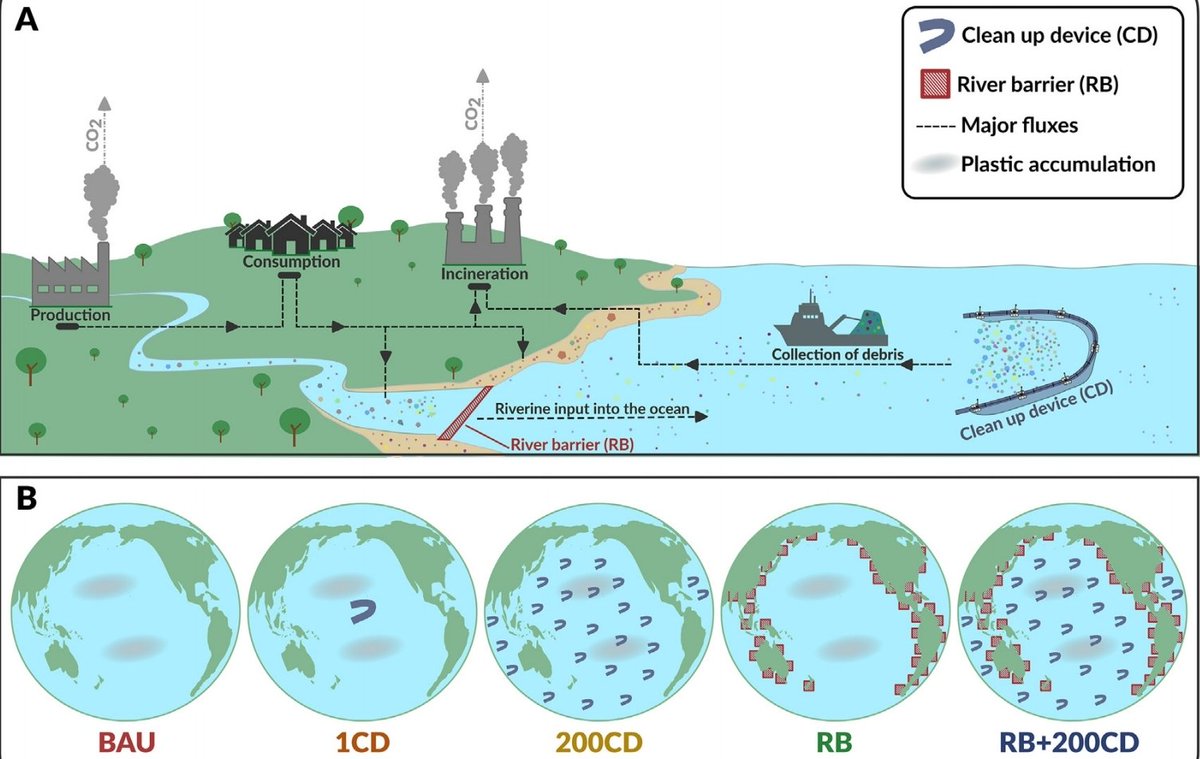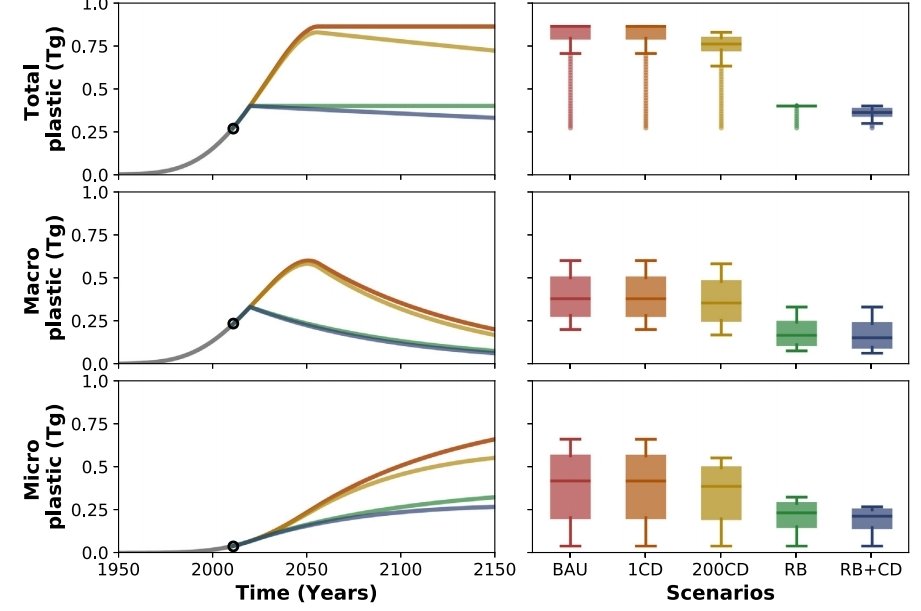Should society invest in #plasticCleanup? Which is better- collecting plastic from rivers or the open ocean? What happens to the collected plastic?
A thread:
(1/6) https://twitter.com/dwnews/status/1355502020426412032
A thread:
(1/6) https://twitter.com/dwnews/status/1355502020426412032
Hohn et al. (2020) estimate that if river barriers were implemented at every river entering the ocean globally (and were all 100% effective) by 2020, total floating plastic in the ocean would be reduced by >50% by 2150.
(2/6)
https://www.sciencedirect.com/science/article/abs/pii/S0048969720346441
(2/6)
https://www.sciencedirect.com/science/article/abs/pii/S0048969720346441
Removing plastic from rivers is significantly more effective than from the open ocean. Assuming 100% effectiveness and no failures, one @OceanCleanup3 device (1CD) would reduce floating ocean plastic by 0.09% by 2150 relative to business as usual (BAU).
(3/6)
(3/6)
Assuming all plastic can be removed from rivers globally and 200 ocean cleanup devices are implemented, disposal of collected plastic is likely to be through burial or burning. Incineration of captured plastic would result in >1 gigaton of CO2 emissions by 2150.
(4/6)
(4/6)
Plastic burned for energy is 25% efficient (gas-fire plants are 50%). Also, burning plastic releases toxic chemicals such as hydrochloric acid, sulfur dioxide, dioxins, furans and heavy metals, as well as small particulates.
(5/6) https://www.researchgate.net/publication/305892272_Toxic_Pollutants_from_Plastic_Waste-_A_Review
(5/6) https://www.researchgate.net/publication/305892272_Toxic_Pollutants_from_Plastic_Waste-_A_Review
While collecting plastic in rivers is far more feasible and cost-effective than the open ocean, sustainable mitigation strategies must prioritize plastic reduction and improved waste management, with extended producer responsibility models.
(6/6)
(6/6)
TL;DR, managing plastic waste is hard and will require substantive change, and fancy, expensive technologies will help, but are not a silver bullet. Thanks @ZoeLenkiewicz for this *fabulous* illustration!
To be very clear, under an extremely un-realistic/idealistic cleanup simulation, we'd STILL only cleanup ~50% of ocean plastic by 2150. Most plastic will fragment into #microplastics, and never be taken out of the system. We must turn off the tap.

 Read on Twitter
Read on Twitter





